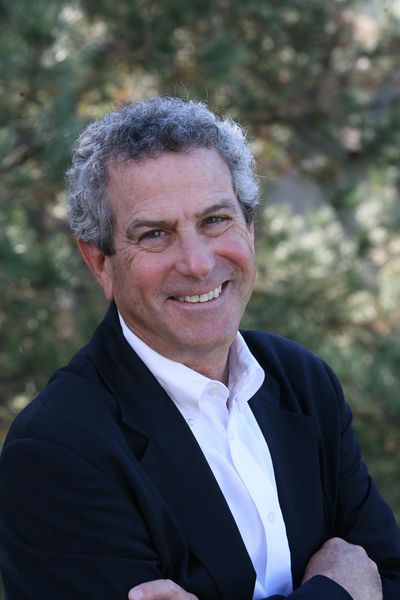Doctor wants patients to reclaim dying as part of living

Americans are dying all wrong – spending too much time and money in hospitals and intensive care units receiving invasive treatments instead of enjoying those last, valuable days at home, argues Ira Byock, one of the nation’s experts in palliative care and the chief medical officer for the Providence Institute for Human Caring in Torrance, California.
Byock is calling for a revolution, where health consumers – especially patients and their families – demand a better death on their terms. That means accepting that death is a natural part of life and that at some point medicine can’t save people. It means keeping people out of pain and at home so they can be present in this poignant time that is often sacred for families.
“It means that at some point in time we have to care for their comfort, dignity and support their interpersonal, social and spiritual well being,” Byock said in a recent telephone interview. “We know how to do this. The best hospice, best palliative care and the best nursing homes give us this model and show us the way.”
Byock is giving a free presentation Thursday at the Spokane Convention Center during his two-day visit. He also will talk with Providence Sacred Heart physicians and clinical staff. The public presentation is sponsored by Eastern Washington University and Providence Health Care in addition to Empire Health Foundation and Group Health.
“I challenge people both professional and the general public in Spokane to raise their expectations and then together work collaboratively to make sure we can get those higher expectation met,” said Byock, who worked in the 1990s in Missoula as the co-founder and principal investigator for a community-based organization dedicated to researching and transforming the end-of-life experience.
He still has a home in Missoula but lives the majority of the time in the Los Angeles area near the Providence Institute for Human Caring, which focuses on whole-person care. Patients are involved in their decisions, families receive help supporting seriously ill loved ones and caregivers receive help coping with the strains of their work.
Byock travels sharing the insights of whole-person care to health care providers and community groups. His focus is to integrate whole-person care into mainstream health care, which he said is less expensive and will actually improve the length and quality of life for people with serious and terminal illness.
Liz DeRuyter, director of external communications for Providence Health and Services in Spokane, said there is growing acceptance for palliative care as people come to understand it is not the same as hospice.
“The view of palliative care is changing in Spokane as people better understand that it is about living with acute and serious illness with the best quality of life possible,” DeRuyter wrote in an email. “The specialized care is appropriate for anyone with a serious illness impacting their quality of life. It can be that a person is receiving palliative care alongside aggressive and potentially curative treatments for a serious or life-threatening illness or injury. If the time comes to transition to hospice care, the palliative care specialists can help.”
DeRuyter said the local Providence palliative care team includes physicians, nurse practitioners, registered nurses, social workers, chaplains and music thanatologists (who combine music and end-of-life care). She added that the care also includes attention to the needs of the patient’s family.
There is no malice in how dying has become a national disgrace, Byock said. It gradually happened as modern medicine and technologies advanced and all the focus was on saving lives no matter the cost. Yet the reality is people die. Medicine hasn’t made anyone immortal.
“Ultimately there is a cultural change that is necessary here,” he said.
A change that embraces the advances in palliative medicine, hospice and geriatrics in the past 20 years that prove dying well is both feasible and affordable. A change that must happen as the wave of baby boomers age and there will be more older, dying people than ever.
Byock rallies for medical schools to train new doctors to assess and treat pain, listen to patients’ concerns and collaborate with patients and families making medical decisions. Most doctors focus on disease, diagnosis and treatment rather than the care of the whole person.
Although most people want to die at home surrounded by loved ones, that’s not happening. People with cancer, chronic lung and heart disease and Alzheimer’s are dying in hospitals or long-term care facilities. “Less than 45 percent of dying Americans receive hospice care at home, and nearly half of those are referred to hospice within just two weeks of death,” Byock wrote in the New York Times in February.
Besides changing medical schools and systems for how care is coded and reimbursed, Byock suggests requiring nursing home companies to double staffing, allowing more time to be spent with each resident. He wants a minimum standard for palliative care in each hospital, not just one part-time nurse with a course on palliative care. And he wants meaningful quality ratings for hospitals, nursing homes, assisted living, home health and hospice programs for people to use when choosing care.
Lastly, he wants Americans to repeal the Medicare statute that forces incurably ill people to forgo disease treatments in order to receive hospice care.
Byock views the current state of dying as a national health crisis – one that is very preventable – and he writes about the solutions in articles and books, including “The Best Care Possible: A Physician’s Quest to Transform Care Through the End of Life.”
“Dying is a time of living,” he said. “It’s time to reclaim this rich time of life.”
This story was updated to correct the name of the Empire Health Foundation.